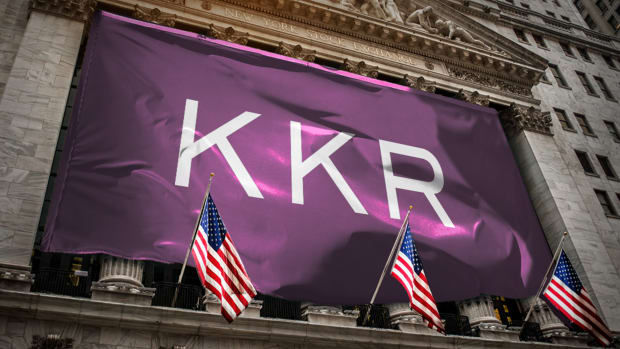You’ve probably read a lot about rising wages.
In the 12 months through March, average hourly earnings soared 5.6% for American workers.
Things are going especially well for chief executives.
Median pay for CEOS of S&P 500 companies climbed 6% to a record $14.2 million last year from the previous high of $13.4 million a year earlier, according to The Wall Street Journal, using data from MyLogIQ. Most CEOS garnered a raise of more than 11%.
Looking at some individual chief executives, the Journal listed private equity titan KKR’s (KKR) co-chief executive Joseph Bae with the top compensation of $560 million last year, and his fellow KKR chief executive Scott Nuttall at $523 million.
Then came David Zaslav of Discovery (DISCA) at $247 million. A securities filing Monday stated that David Baszucki, chief executive of online video game platform (RBLX) rblx, earned $233 million last year.

TheStreet
Huge Paychecks Draw Fire
All that money has drawn some pushback.
The left-leaning Economic Policy Institute took umbrage with executive pay in a report last August.
“Corporate boards running America’s largest public firms are giving top executives outsize compensation packages that have grown much faster than the stock market and the pay of typical workers, college graduates, and even the top 0.1%,” the report said.
“In 2020, the ratio of CEO-to-typical-worker compensation was 351-to-1 under the realized measure of CEO pay; that is up from 307-to-1 in 2019 and a big increase from 21-to-1 in 1965 and 61-to-1 in 1989.”
The implications aren’t pretty, the report said. “Exorbitant CEO pay is a major contributor to rising inequality that we could safely do away with,” it stated.
“CEOs are getting more because of their power to set pay and because so much of their pay (more than 80%) is stock-related, not because they are increasing their productivity or possess specific, high-demand skills.”
How Could Companies Fix That?
The report had several suggestions to solve the problem, including:
· “Reinstating higher marginal income tax rates at the very top;
· “Setting corporate tax rates higher for firms that have higher ratios of CEO-to-worker compensation;
· “Use of antitrust enforcement and regulation to restrain firms’ — and by extension, CEOs’ — excessive market power;
· “Allowing greater use of ‘say on pay,’ which allows a firm’s shareholders to vote on top executives’ compensation.”
Last week, activist investor Carl Icahn blasted grocery store titan Kroger's (KR) Chief Executive Rodney McMullen for receiving compensation of $22.4 million in 2020, or 909 times more than the median Kroger worker.
In a letter to Kroger, Icahn wrote, “The wage gap between the CEO and median worker at Kroger is unconscionable.”







